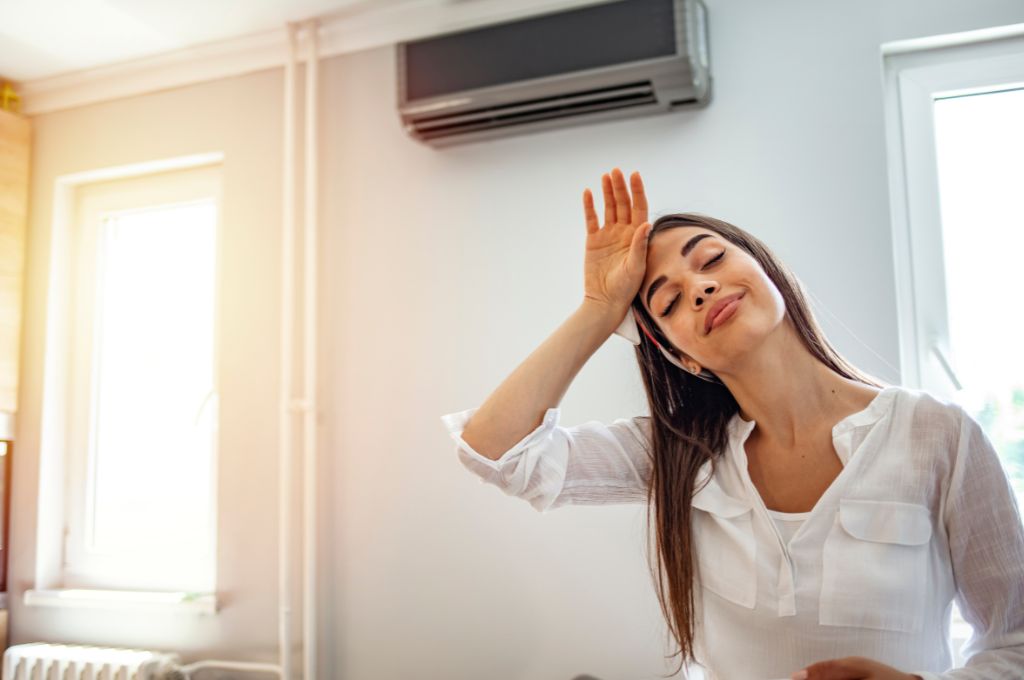Last Updated on April 9, 2023 by Kravelv Spiegel
During a power outage, it may be extremely annoying and uncomfortable if your air conditioning (AC) system is unable to chill the air in your home. This is especially true during the hot summer months. Nonetheless, this is a problem that a great number of homeowners experience. The following are some of the most typical reasons why your air conditioner might not be cooling properly after a power loss, as well as some solutions to the problems they cause.
Common issues why is ac not cooling after a power outage
Tripped circuit breaker
During a power loss, a tripped circuit breaker is one of the most likely causes of your air conditioner’s failure to chill the room properly. Power surges that occur during a blackout can trigger circuit breakers, which in turn can cause the power supply to your air conditioner to be cut off. Check the breaker on your circuit box and reset it if it has to be done. This should fix the problem.
Dirty Air Filter
If the air filter in your air conditioner is unclean, it will have to work more to keep your home at a comfortable temperature, which may result in decreased cooling effectiveness. During a power outage, if your air conditioner is not producing cold air, check the filter in it and replace it if it is unclean.
Clogged condenser coils
Condenser coils are essential to the process of removing heat from your house; nevertheless, with time, they can get blocked with dirt and other debris. Because of this, the effectiveness of your air conditioner may suffer. Using a coil cleaning on your condenser coils can allow you to address this problem once and for all.
Faulty capacitor
A capacitor is an electrical component that assists in starting the compressor for your air conditioner. A power spike that occurs during an outage might cause damage to the capacitor, which can result in your air conditioner being unable to chill the air. If you think you may have a defective capacitor, you should get it replaced by a trained professional technician.
Leak refrigerant
It’s possible that your air conditioner’s inefficiency is due to a refrigerant leak. Because this is such a significant problem, it can only be fixed by an experienced technician in the field. In the event that you believe there may be a leak of refrigerant, you should immediately contact a qualified professional specialist.
FAQs on Why AC is Not Cooling After Power Outage
Can a power outage damage my AC unit?
The answer is yes; power outages can cause harm to your air conditioning machine, especially if there is a power spike during the outage. After a disruption in the power supply, it is essential to have your system examined by a trained technician to verify that it is operating correctly.
How often should I change my AC filter?
It is advised that you change the filter in your air conditioner every one to three months, depending on how often you use it and the type of filter you have. The effectiveness of your air conditioner’s cooling system can be negatively impacted, as can your monthly energy costs, if the filter is unclean.
Can I clean my condenser coils myself?
With a coil cleaner, you can certainly do the job of cleaning the condenser coils all by yourself. However, if you are not confident in your ability to carry this out on your own, it is advised that you contact a qualified professional technician to carry it out on your behalf.
How do I know if my capacitor is faulty?
During a power loss, if your air conditioner does not cool properly and you heard a clicking noise as you try to switch it on, this may be a sign that there is a problem with the capacitor. A qualified expert is able to identify the problem and change the capacitor if it turns out to be required.
How often should I have my AC system maintained?
It is suggested that you get your air conditioning system serviced once each year to verify that it is operating correctly and to prevent any problems from developing in the future. A longer lifespan for your machine is another benefit of doing routine maintenance.
Final Words
In conclusion, power outages can result in problems with your air conditioning system; however, the majority of these problems can be fixed by inspecting the circuit breaker, the air filter, and the condenser coils. In the event that these do not resolve the issue, it is important to contact a qualified professional specialist who can analyze and fix the issue. Doing preventative maintenance on your air conditioning system can help reduce the likelihood that problems will arise in the first place.

